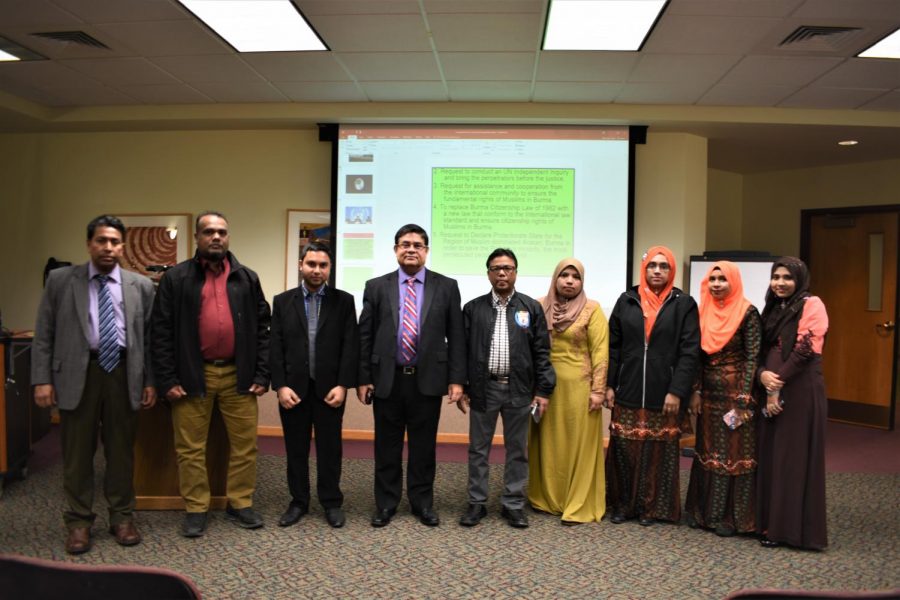Ongoing Genocide in Myanmar
February 26, 2020
On the night of Feb. 18 in Laun 209, a convocation “The Rohingya Crisis in Myanmar” was held and two speakers from Myanmar, U Shwe Maung Abdul Razak and Shaukhat Kyaw Soe Aung Ali MSK Jilani, advocated the ongoing genocide towards Rohingya which is an ethnic minority of Islamic people living in Arakan in Myanmar.
According to Mr. Maung, president of Arakan Institute for Peace and Development (AiPAD) in Houston, TX, the Rohingya Crisis consists of six series of prosecutions by the Myanmar government towards Rohingya people from 1914 to present. He emphasized that the discrimination and the prosecutions which include murder, rape, forced labors, and setting villages on fire are ongoing. “For the case of Rohingya, 400 villages of Rohingya were set on fire, 30,000 Rohingya men, women, and children were killed. Thousands of Rohingya women were raped in front of their husbands and parents,” Mr. Maung described.
He finished his speech by reading the messages from Rohingya. “Please help us. We are requesting for all Rohingya leaders to save our lives. We are not requesting food. We are requesting to save our lives. Daily, five to ten Rohingyas are killed. Myanmar army and Arakan army are fighting daily. If Rohingya leaders and the international community cannot protect Rohingya, all Rohingyas will be killed sooner of the year,” Mr. Maung stated.
Another speaker, Mr. Ali, a founder and executive director of the Rohingya American Society (RAS) in Milwaukee, presented on the RAS which supports the refugees from Rohingya and preserves the documents on the genocide. “The basic objective of the RAS is to work for the welfare, development, social treatment, and educational activities of the Burmese Rohingya community in America. In addition, this organization is an advocate of freedom and social justice in Burma and makes regular public statements about genocide, ethnic cleansing, inhuman atrocities, racial discrimination, religious prosecution, violence, human rights violations and other humanistic affairs in Burma,” Mr. Ali stated.
Mikayil Abaszada, a junior student, described his perspective on the cruelty of the genocide. “It’s such a large scale. I would have never expected there to be such an atrocity in terms of how they torture people. I know that a lot of countries may still have human rights issues where one tortures the other, like some authorities torture the population, but not in piles. Did you see the piles of dead bodies? That’s what I found really shocking. Also, how the government leader … denies political stances the other countries take against Myanmar,” Abaszada mentioned.
Rueben Richardson, a freshman, elaborated on the necessity of help for Rohingya. “My impression of the convocation was that it really made me think of everything in a new light with everyone dealing with so much that we need to acknowledge and help as much as we can for those who are less fortunate. It made me feel the urgency of the situation that they are in. It’s life or death for them and they need our help so I want to help them as much as I can as a person. This is something we all need to do for this group of people in general,” Richardson stated.
For more information, visit Rohingya American Society in 1575 West Oklahoma Avenue, Milwaukee, WI, or their website: rohingyaamericansociety.blogspot.com


